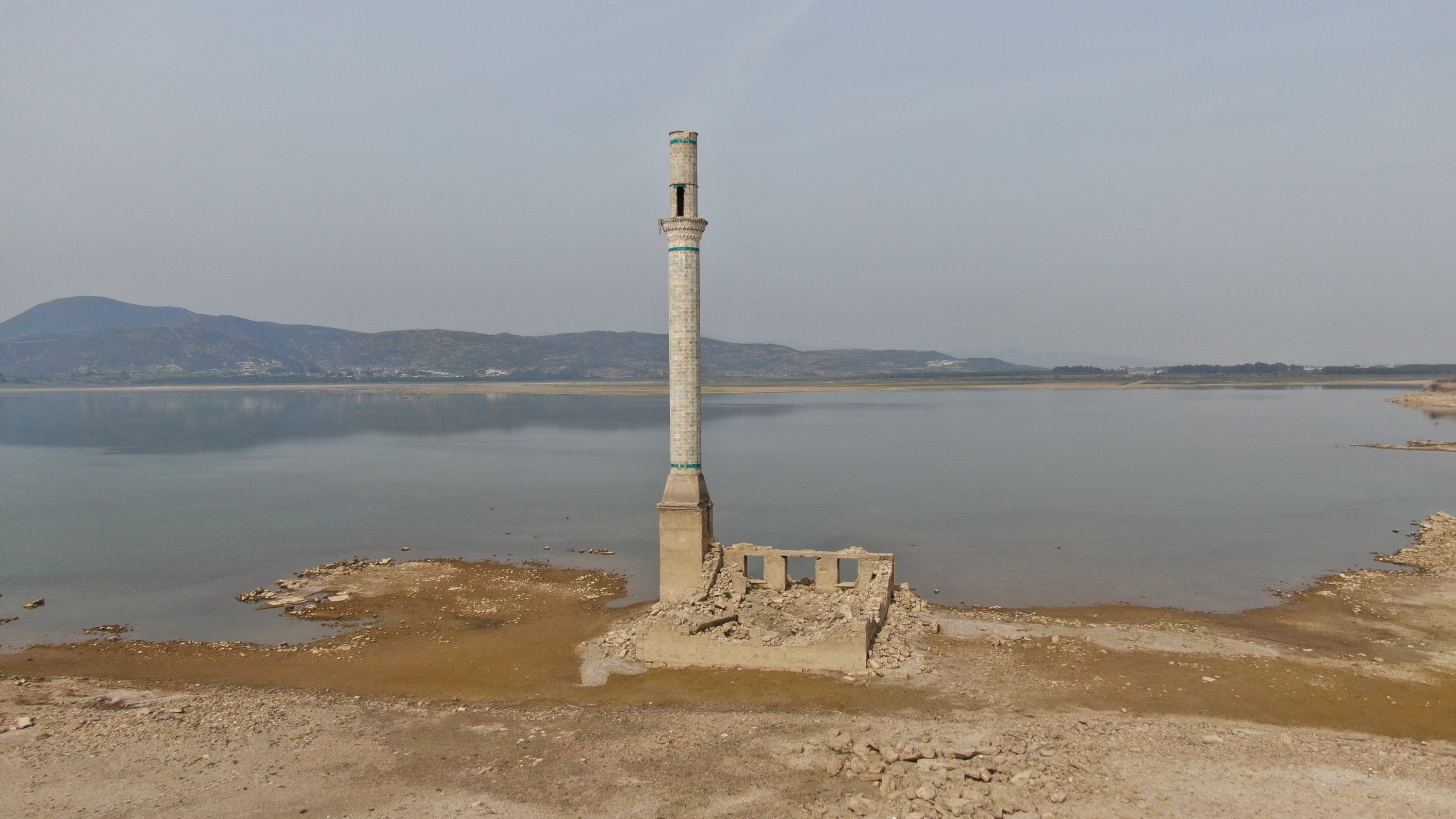© Turkuvaz Haberleşme ve Yayıncılık 2026
Türkiye is experiencing severe droughts as dams around the country’s major cities have reached low levels amid a lack of rainfall and an unusually warm winter stemming from global climate change.
The current scenario has raised alarms in the major Turkish cities including Ankara, Istanbul and Izmir as they highly depend on freshwater reservoirs.
Earlier this month, the precipitation decreased by 51.8% in Istanbul. The lack of water storage in dams is pushing the city toward a crisis, according to the statements of the Turkish State Meteorological Service (TSMS).
Izmir, Türkiye's third-largest city, which lies on the Aegean coast, fears a severe drought and no prospects of precipitation anytime soon this year.
The apprehensions emerged when the remnants of the old settlement were visibly seen after the water level decreased in Izmir's Tahtalı Dam amid the driest year since 2009 pointing out that 2023 is the fifth driest year in the last 23 years.

The images of Tahtalı Dam, which is the largest dam in Izmir and meets most of the city's water needs, raised concerns among citizens. While the water level in the dam drops visibly, experts fear that if there is no rain, only 300 days of water remain in Tahtalı.
Commenting about the present situation, the Head of the Water Treatment Department of the General Directorate of Izmir Water and Sewage Administration (IZSU) Hakan Alpsoykan said: "We experienced bad situations in 2001, 2003, 2008 and 2009, but this is the worst year of all. The rainy season is not over yet. I hope we get more rain."
Highlighting the latest situation in Izmir's other dams, Alpsoykan explained: "We currently have 3.14 million cubic meters of water in Balçova Dam, with a 39% of occupancy. Last year, there was 5.89 million cubic meters of water. There is a decrease of 35% considering the regions fed by the dam, with only 150 days' water capacity remaining in the dam if there is no rain. While the capacity of Çeşme Kutlu Aktaş Dam is 7.57 million cubic meters of water with 36% of active occupancy. Whereas last year, it was 14.7 million cubic meters of water with 88% of active occupancy rate recorded."
Samsun, situated on the northern coast of Türkiye and a major Black Sea port, is also experiencing the driest period of the year. The water level in some dams has decreased because of the low precipitation. For instance, Çakmak Dam, which supplies drinking water to Samsun, is now left with 79.5% of total drinking water.
According to the experts, a warning has been issued as the danger of drought continues to linger in Türkiye. Pointing out to a false spring that took place in the last days of February, experts explained that the sudden increase and decrease in the temperatures play an important role in changing the occupancy rate of some dams and an increase in others.
This is the reason that Çakmak Dam, which meets the drinking water needs of almost the whole Samsun city center had a 100% occupancy rate last year and is now measured with 79.5% in February 2023. Meanwhile, the water level of the Suat Uğurlu Dam on the Yeşilırmak River, which was 77.8% full last year, was recorded at 57.5% this year. The water level in Hasan Uğurlu Dam, which was measured at 44.8% in 2022, decreased to 37.6% in 2023.
The water level of the Duruçay Dam, which was 75.8% in February last year, dropped to 39.7 in February 2023. The occupancy rate of Derbent Dam, located on the Kızılırmak River, which was 93.8% last year, decreased to 88.5%.
The water level rose in Altınkaya and Vezirköprü Dams in Samsun. The occupancy rate of Altınkaya Dam, which is located on the Kızılırmak River and is one of the largest dams in Türkiye, whose water level was measured as 21.5% in February 2022, increased to 46.3% in February 2023.
The occupancy of Vezirköprü Dam, which was 29% last year, was recorded as 76.1% in February this year.
It seems that the country will experience these dry periods more frequently. Hence, it's time to spread awareness regarding the conservation of water. The authorities should review their management and consumers should be heedful of their water usage habits.
Given the drastic climate changes, we have to adapt to new living habits and be more conscious about conserving our environment, the experts concluded.
